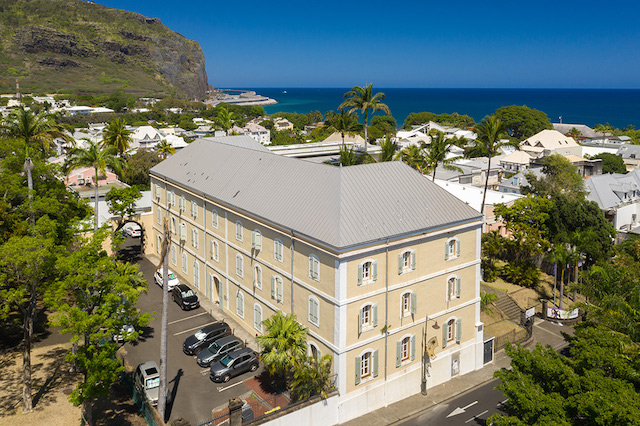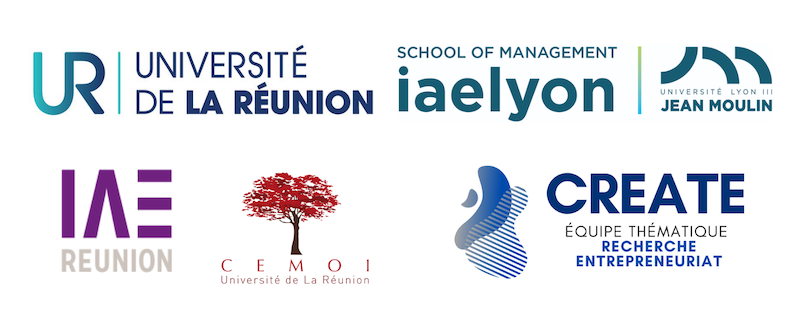|
.
Présentation In the face of contemporary economic, social, ecological, and territorial challenges, entrepreneurship appears to be both a possible solution and a lever for transformation. This observation is particularly striking in so-called peripheral or localized contexts—whether insular, rural, overseas, or marginalized — where geographical, cultural, political, social, or economic specificities make entrepreneurial dynamics particularly visible, inventive, or constrained. The conference “Entrepreneurship in Context: Dynamics, Challenges, and Transformative Perspectives” explores the many ways of doing business in, through, and for territories. By bringing together academic research, field experience, and support mechanisms, this conference aims to fuel scientific debate while contributing to strategic thinking among actors involved in supporting or practicing entrepreneurship in specific, unique, sometimes fragile, but always dynamic contexts. We invite researchers to submit conceptual, theoretical, or empirical papers using quantitative, qualitative, or mixed methodologies, focusing on specific local contexts or questioning notions of marginality, relegation, or entrepreneurial otherness. Any work that contributes to the discussion of entrepreneurship as a situated, transformative phenomenon rooted in specific contexts will be carefully considered. Research themes Axis 1 – Entrepreneurship and gender: identities, inequalities, narratives, and resistanceFeminist and critical research has shed light on gender relations, systemic inequalities in access to resources, dominant narratives about entrepreneurship, and the room for maneuver available to women and gender minorities in terms of identity. This theme welcomes contributions that explore, in constrained or specific contexts: How do gender norms shape entrepreneurial practices? What forms of resistance, adaptation, or reappropriation can be observed? How do support mechanisms take gender issues into account (or not)? What methodologies can be used to understand marginalized or invisible trajectories? Axis 2 – Entrepreneurship and ecosystems: resources, proximities, interdependenciesThe entrepreneurial ecosystem approach allows us to understand entrepreneurship in its collective, territorialized, and multi-actor dimensions. Applied to territorial contexts, this approach reexamines the notions of proximity/distance, the mobilization of local resources, public/private interactions, and the resilience of territorial systems. This theme invites us to consider the fabric of the ecosystem through the prism of dynamics of territorial dependence or empowerment, public/private cooperation, and the place of entrepreneurs in the co-construction of environments conducive to action. Some possible questions: Who are the key actors in low-density or highly constrained contexts? How do entrepreneurs mobilize available resources? What links are emerging between the local, national, and international levels? Axis 3 – Impact entrepreneurship: social, environmental, and cultural goalsForms of impact entrepreneurship (social and solidarity entrepreneurship, environmental entrepreneurship, cultural entrepreneurship, etc.) are part of an explicit desire to transform societies. They often take on particular importance in island territories, which face challenges such as ecological transition, cultural preservation, social cohesion, and economic sovereignty. This theme explores forms of entrepreneurship that aim to achieve societal goals, hybrid economic models, frugal innovations, forms of impact measurement, and the narrative and symbolic frameworks that support these projects. Some questions to consider: What are the specific characteristics of impact entrepreneurship? How do entrepreneurs conceive and measure their impact? What relationships do they have with environmental, cultural, or social issues? How do these forms of entrepreneurship transform the dominant imaginaries or practices of development? Submission guidelines Proposals must be submitted by September 1, 2025, exclusively via the conference platform. They must include: a title, an abstract of no more than 1,500 words (including spaces, excluding bibliography), identification of the preferred thematic area of the call for papers, the subject matter, the problem being addressed, the field(s) of study, the method(s) used, and the originality and ambition of the expected results. Proposals must be original. All submissions will be checked for plagiarism. Important: papers must be anonymized and free of any information that could identify the author(s). This information must be entered directly on the platform. Provisional schedule
Practical information The conference is aimed at teachers, researchers, doctoral students, practitioners, support program managers, institutional representatives, and committed entrepreneurs. It will be held at the University of La Réunion, on the Victoire campus (IAE Réunion). Logistical details (exact dates, rooms, recommended accommodation) will be provided at a later date.
There will be a fee for participants, whether speakers or attendees. The exact amount will be specified at a later date. Transportation and accommodation costs are the responsibility of the participants.
Organizing and Scientific Committee Scientific Committee Marie-Christine Chalus, University Professor, iaelyon School of Management – Jean Moulin Lyon 3 University; Romain Lesage, Senior Lecturer, iaelyon School of Management – Jean Moulin Lyon 3 University; Pauline Gibard, Senior Lecturer, iaelyon School of Management – Jean Moulin Lyon 3 University; Jérôme Gardody, Senior Lecturer, IAE de La Réunion – University of La Réunion; Virginie Moisson, University Professor, IAE Réunion – University of La Réunion; Alain Cucchi, University Professor, IAE Réunion – University of La Réunion; Nathalie Duran, Senior Lecturer, IAE Réunion – University of La Réunion; Jean-Pierre Tang-Taye, Senior Lecturer, IAE Réunion – University of La Réunion. Organizing committee Marie-Christine Chalus, University Professor, iaelyon School of Management – Jean Moulin University Lyon 3; Romain Lesage, Senior Lecturer, iaelyon School of Management – Jean Moulin University Lyon 3; Pauline Gibard, Senior Lecturer, iaelyon School of Management – Université Jean Moulin Lyon 3; Jérôme Gardody, Senior Lecturer, IAE Réunion – University of La Réunion; Virginie Moisson, University Professor, IAE Réunion – University of La Réunion; Alain Cucchi, University Professor, IAE Réunion – University of La Réunion. Organization This conference is organized in partnership with the CREATE Entrepreneurship Research Team and the IAE Réunion (University of La Réunion). The CREATE Entrepreneurship Research Team is part of the Magellan Laboratory at the IAE Lyon School of Management – Université Jean Moulin Lyon 3. Created in 2019, it develops an applied and transdisciplinary approach to entrepreneurship. Its work focuses in particular on the dynamics of entrepreneurs, territorial ecosystems, impact entrepreneurship, support practices, and the gender dimensions of entrepreneurship. It seeks to bring together the perspectives of researchers and practitioners to contribute to forms of transformative entrepreneurship rooted in local areas. For more information: https://iae.univ-lyon3.fr/equipe-ecosysteme-entrepreneurial. A multidisciplinary educational institution and a pillar of the local training and research ecosystem, the University of La Réunion is the only French and European university in the Indian Ocean. Its location at the heart of the Africa-Asia axis gives it a major role as an ambassador for French higher education, research, and innovation in the region. Each year, it welcomes more than 19,000 students to its nine sites and campuses, offering them a range of more than 200 high-quality programs. These courses are supported by 22 laboratories, making the university the leading research center in the region. Located in the historic city center of Saint-Denis, IAE Réunion has been working for more than 60 years to promote local development in close collaboration with the region's dynamic players and the local entrepreneurial ecosystem. With a network of 7,000 graduates, IAE Réunion, the leading management and business school in its region, combines the values of a university with the advantages of a prestigious grande école. With business-oriented programs, the school places particular emphasis on professionalization and trains graduates to be immediately operational and experienced through internships and work-study programs. For more information, visit https://www.iae-reunion.fr/. .
|




